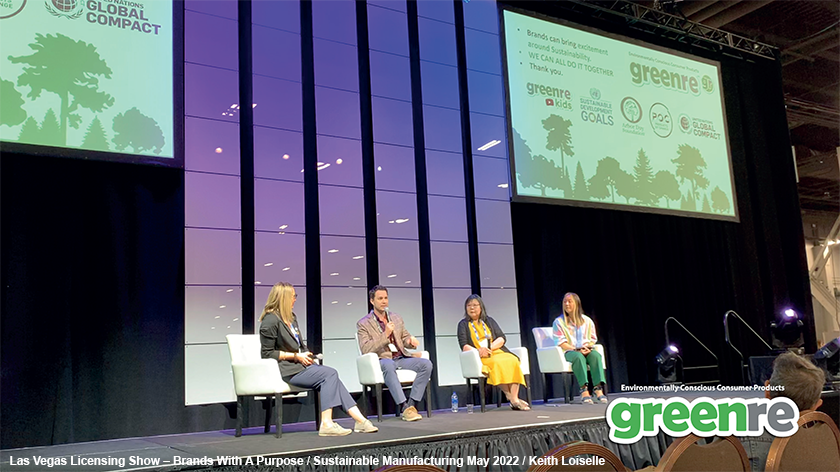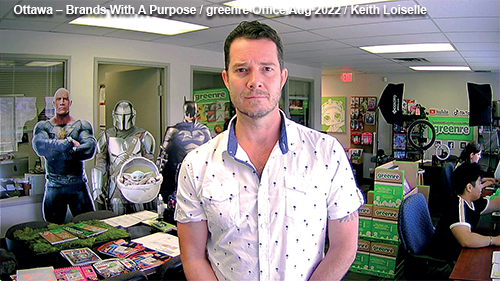
Make the right choice
Our planet is in dire straits. Floods, wildfires and soaring temperatures are having an increasingly negatively impact on the environment.
The Paris Agreement, a legally binding international treaty on climate change, recommended that the 196 parties at COP 21 agreed, as a global community, to limit global warming to well below 2, preferably 1.5 degrees Celsius.
A recent study, published in EcoWatch, found that increasing night time temperatures could raise mortality rates by 60 percent. Scientists have forecast that this trend needs to be reversed within the next eight years. It’s a race against time. We can no longer wait. We need to act now.
As such, there is global demand for greener solutions. Nations and organisations have taken the pledge. While significant retailers, such as Walmart, Costco, and Rexall, are doing the heavy-lifting in core areas, we can all do our part, big or small, to move the dial.
Retailers and manufacturers are exploring areas where they can make the biggest, immediate impacts; putting thought into designing products that prioritize the circular economy. In Canada, several organizations are eliminating the use of plastic bags, and incorporating white, rather than the traditional black, food trays into the supply chain. Plastics are steadily being replaced by recyclable or compostable alternatives.
It takes 500 to 1000 years for plastic to decompose. That means any non-recyclable plastic going to landfill will still be there during our lifetime. Worryingly, micro plastics are even showing up in the human blood stream.
While Canada was cited by Good with Money as the top-performing country to place federal priority on tackling plastics, we recognize there’s still work to be done.
Sustainability is intrinsically linked to the future of the retail sector, and suppliers that are on board sooner rather than later will be far better aligned with retailers’ strategies. Retailers and licensors alike are developing guidelines surrounding their expectations to ease the journey towards achieving their corporate sustainability goals.
Consumers are also seeking sustainable solutions, and research shows that they are willing to pay for their principles. Gen Z and millennials’ purchasing decisions reflect their values and this purchasing power will continue to shape the retail sector in years to come.
Circular economy is key to achieving zero waste and the thinking around sustainable design and manufacturing needs to be more mainstream. The traditional linear economy of ‘take, make, dispose’ is still very much in existence. An obvious example is the licensing of a plastic product, manufactured to meet a particular demographic trend. Inevitably, this type of product is routinely single-use. Companies need to question whether their products are designed with value, circular economy and the environment in mind.
Most of us have, at one time, purchased something for a child that breaks almost immediately and is declared to be ‘utter garbage.’ This couldn’t be closer to the truth. The back-to-school market provides a pertinent example. A national retailer’s stationery sets, targeted at four-to-eight-year-old children, include a plastic calculator. An understanding of the market would highlight that children of that age don’t use calculators, neither in school nor at home. To add insult to injury, the product was being sold in thick, soft, non-recyclable plastic packaging. There is no value in shelf-stuffing. Products need to be age-appropriate, thoughtfully-designed and sustainably realized.
 Brands are in the best possible position to drive excitement and engagement surrounding sustainability and can influence their consumers to make better choices. We are delighted to have been licensed to the top brands in the world, including Disney, Marvel, Warner Bros., MGA’s LOL, Lucas, Mattel and Emoji, with many more majors onboarding.
Brands are in the best possible position to drive excitement and engagement surrounding sustainability and can influence their consumers to make better choices. We are delighted to have been licensed to the top brands in the world, including Disney, Marvel, Warner Bros., MGA’s LOL, Lucas, Mattel and Emoji, with many more majors onboarding.
We have launched our own brand and licensed environmentally-conscious products to grow our sustainable and circular economy offering. We prioritize using materials that minimize environmental pressures and in response to product sales, we’re planting long leaf pine trees in partnership with the Arbor Day Foundation’s global reforestation program. When customers buy our products, they’re doing their part to help the planet.
We are a proud member of Products of Change (POC), a global education hub, established a few years ago in the UK by founder, Helena Mansell-Sopher. POC is geared to helping drive sustainability across Consumer-Packaged Goods (CPG), brands and licenses, both globally and in local markets, with Brenda Seto as POC Ambassador for Canada and North America.
As a member, we have improved our sourcing processes and product and package design and application. Constantly learning, we tap into the best practices of other organizations, in other parts of the world and across different sectors within the POC community. Collaboration is key and we are privileged to be among heavyweights like Lego, Hasbro, Tesco and Walmart/Asda, as well as start-ups and SMEs. At key industry shows, such as the recent Licensing Expo’s Licensing University, we presented on the panel, talking about sustainable manufacturing for stationery and arts and crafts products.
To ensure we adhere to globally-accepted standards in Sustainable Development Goals (SDGs), we were accepted into the United Nations Global Compact. We are also participating in its Ambition Accelerator program to further equip ourselves with the knowledge and skills needed to progress towards SDGs. This is a key step towards the company’s goal of achieving B-Corp certification.
The key for everyone, whether a company or an individual, is to make the right choice for a more sustainable planet and better future for generations to come. Whether a purchase or process, our choices can make a positive impact.
Recent legislation, put in place by both the US and Canadian governments, should help accelerate companies to act now. In the US, in August of this year, the Senate passed the Inflation Reduction Act, one of the biggest bills in the fight against climate change. The act, which covers funding for clean energy, electric vehicle tax breaks, domestic manufacturing of batteries and solar panels and pollution reduction, is an example of one of the largest, global investments in the climate crisis.
On June 22, the Canadian Government published the Single-Use Plastics Prohibition Regulations, which will prohibit the manufacture, import, sale and eventually, export of six categories of single-use plastic. The good news is that greenre is already ahead of the curve. Our products have been designed with this in mind from the very beginning.
While visiting recycling facilities in Canada, we learned that just a small percentage of those products put in blue bins is actually recyclable; contrary to consumer expectation. Soft plastic and multi-bound materials, for example, are not recyclable. Even plastics that are a different color are not recyclable. Hence the transition from black to white food packaging trays.
The time to act is now. We all need to leave the planet in a better position for future generations. Forethought in process and design will bring value to the customer, create engagement and drive consumers to make more sustainable choices.
Keith Loiselle
Keith Loiselle is CEO at greenre. greenre’s environmentally conscious consumer products are part of its growing sustainable and circular economy offering. The business prioritizes and strives to use recycled materials, bio-fibers, natural materials, recyclables, new age bioplastics and eco-designed alternatives that minimize environmental pressures. greenre plants Long Leaf Pine Trees, throughout its products being sold, in a reforestation global program.
www.greenre.ca